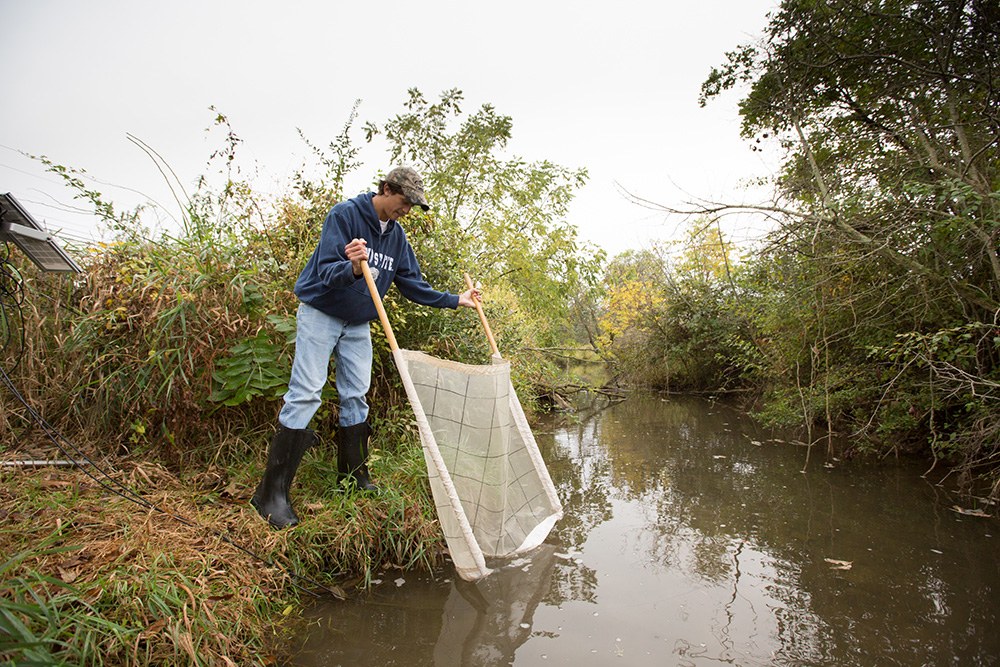SAFES trains the next generation of researchers, educators, practitioners, and policymakers in integrating information from across domains and using science-based data for decision making.

Fieldwork at the Institute for Sustainable Agricultural, Food, and Environmental Science (SAFES)
SAFES offers a unique, multidisciplinary platform and living laboratory to educate students and inspire the next generation of leaders in the science of agricultural sustainability. Structured transdisciplinary opportunities build experience in the science of agricultural sustainability, digital literacy, transdisciplinary thinking, facilitation and leadership, and landscape analyses.
Resident Education and Training
SAFES is the administrative home to the Environmental Resource Management (ERM) undergraduate program, which integrates field- and lab-based learning across stakeholder groups. ERM gathers faculty from across the college to provide an interdisciplinary, environmental science curriculum with the goal to advance problem-solving, decision-making, and communication skills to solve environmental issues. ERM is a leader in environmental science programs, ranking among the top five in the nation by Successful Student. The program offers three tracks for students to tailor their education focused on environmental science, soil science, or water science. The program also connects students to study abroad opportunities and meaningful internships in state and federal agencies as well as non-profit organizations. These activities prepare students to enter fields in environmental protection, conservation, sustainability, and management of natural resources. Many of the ERM students also continue their education in graduate programs across the nation.
ERM has established partnerships across the university and the State College community, including with the Arboretum, Student Engagement Network, Frost Entomological Museum, Sustainability Institute, MorningStar Solar Home, Penn State compost facility, Student Farm, and Millbrook Marsh Nature Center.
The research activities that characterize the science-to-practice model of data acquisition/analysis to modeling to decision support systems provide a plethora of opportunities for students at all levels to acquire a range of technical skills that can augment their educations with practical experience and capabilities and help advance their career prospects. Likewise, the innovative methods of engagement and iterative feedback that underpin this conceptual model give students real-world case studies with applicable experience and transferrable skills in building networks of partners across disciplinary boundaries and beyond the walls of the laboratory or even institution.
Turn your passion for environmental protection and sustainability into a rewarding career with our science-based Environmental Resource Management major.


